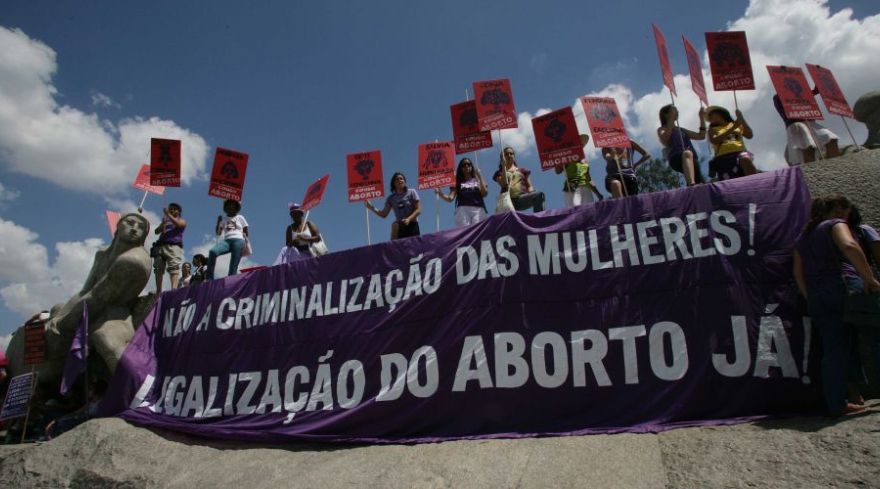Sonia Loddo, is a Master student of Development and International Cooperation at Sapienza Università di Roma and currently is doing an internship at CEI-IUL through Erasmus+ programme. She is collaborating with CEI-IUL’s blog Changing World and wrote a post about the history and current legislation of abortion in Brazil:
Since 1940, abortion has been illegal in Brazil, except in cases of rape or when the woman’s life is at risk. Even when there is a severe foetal malformation as in anencephaly, abortion is only permitted after judicial authorization. Despite legislative efforts to liberalize the law, especially from feminist organizations, the current law has not changed significantly since becoming a statute and the magnitude of clandestine abortions has increased. Women’s access to legal abortion services can be made difficult for several reasons: the conscientious objection of health care professionals, the demands of a sterile bureaucracy as police documents or judicial authorization, stigmatization, poverty, lack of knowledge, and barriers in accessing contraceptive methods.
The following list of articles can be helpful to understand, first of all, the historical background of abortion in Brazil, the present legislation, as well as several factors around abortion’s context (such as diseases, vulnerability, illegal abortion, physicians’ opinions, conscientious or religious objections). It is also useful to keep an eye on the future with respect to the possibility of change and improvement of this complex reality.
1 – Brazil: one of the abortion front lines
To understand the meaning and complexity of abortion in Brazil it might help have an overall vision of the issue. In this article, the author Sonia Correa made a historical excursus about the abortion debate, re-visiting several factors such as political controversies, the Catholic Church, human rights organizations, moral and ethical questions, feminist movements, as well as public opinion untill 2010.
2 – Brazil: Reject Abortion Ban. Constitutional Amendment Would Endanger Women, Girls; Violate Rights
Once understood the context of abortion in Brazil, it is important to know the current situation in the field of legislation. In November 2017, a special congressional committee of Brazil’s Chamber of Deputies approved an abortion ban with 18 men voting yes and 1 woman voting no. After that, the committee voted on the final text of the proposed amendment on December 12 in order to send it to the full Chamber of Deputies. In order to become law and amend the Constitution, the legislation would need a super majority in both houses of Congress, and the president’s signature. The new amendment would prohibit abortion under any circumstances: if it passes, women who do not wish to continue their pregnancies because it threatens their health or because they resulted from rape or even because of disease like Zika virus or HIV, will be forced to continue those pregnancies.
Speaking of disease, this Human Rights Watch article explaines the risk of Zika infection during pregnancy and the consequences of an increasing number of women seeking un-safe and clandestine abortions. The Brazilian public health system does not provide the information and support they need to protect themselves from the virus (in terms of prevention, analysis, or care).[…]
Continue reading the post in Changing World.
Pro-choice feminists protesting in São Paulo on the International Women's Day / Photo by Christiensen / public domain
